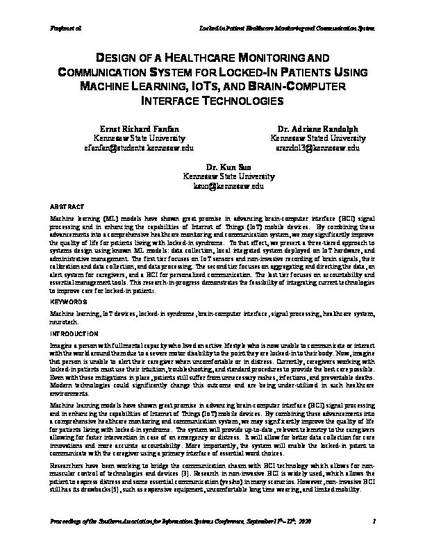
Machine learning (ML) models have shown great promise in advancing brain-computer interface (BCI) signal processing and in enhancing the capabilities of Internet of Things (IoT) mobile devices. By combining these advancements into a comprehensive healthcare monitoring and communication system, we may significantly improve the quality of life for patients living with locked-in syndrome. To that effect, we present a three-tiered approach to systems design using known ML models: data collection, local integrated system deployed on IoT hardware, and administrative management. The first tier focuses on IoT sensors and non-invasive recording of brain signals, their calibration and data collection, and data processing. The second tier focuses on aggregating and directing the data, an alert system for caregivers, and a BCI for personalized communication. The last tier focuses on accountability and essential management tools. This research-in-progress demonstrates the feasibility of integrating current technologies to improve care for locked-in patients.
Available at: http://works.bepress.com/adrianerandolph/39/
